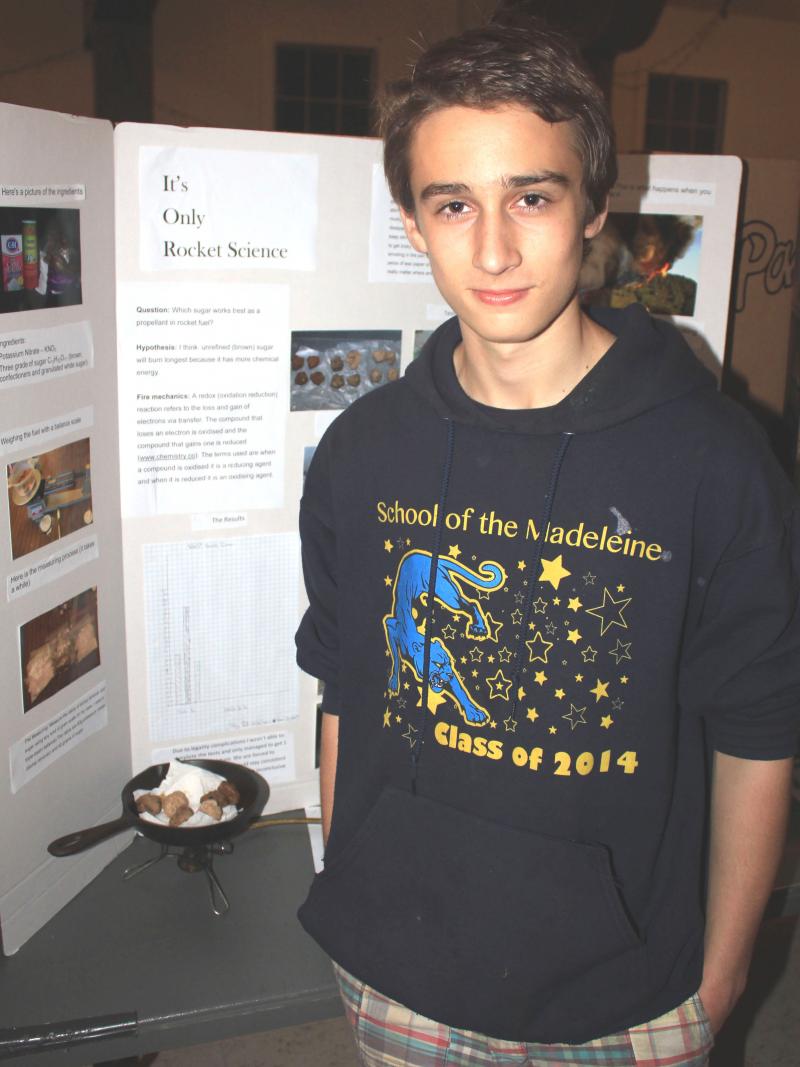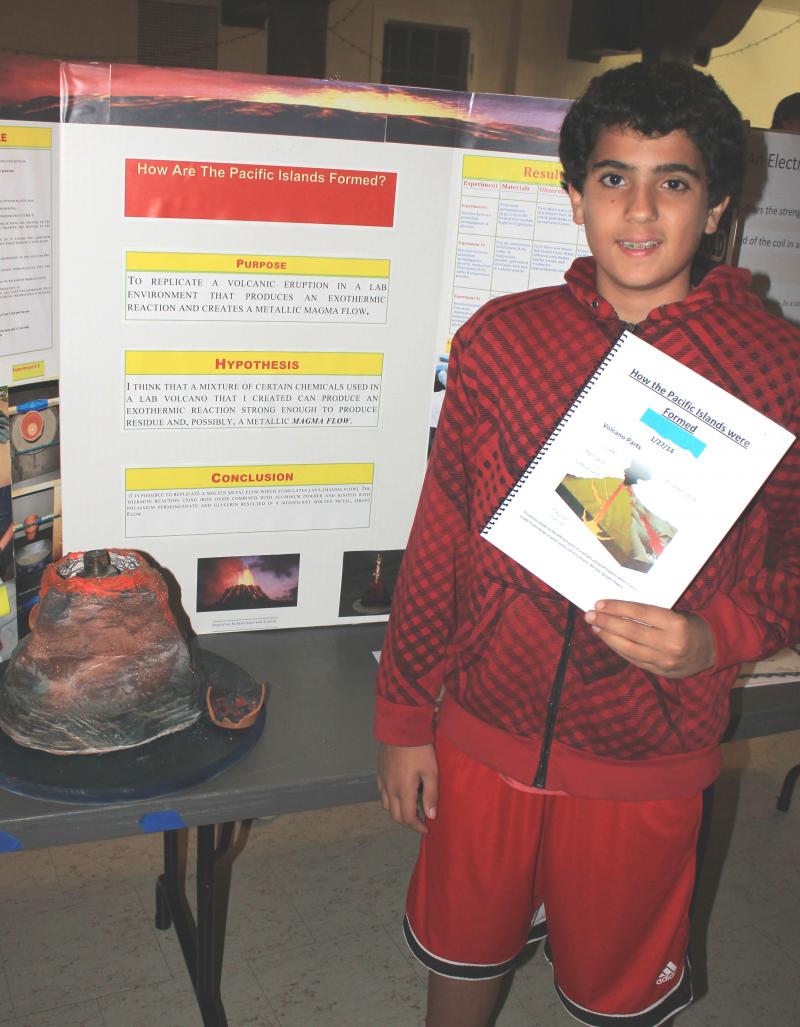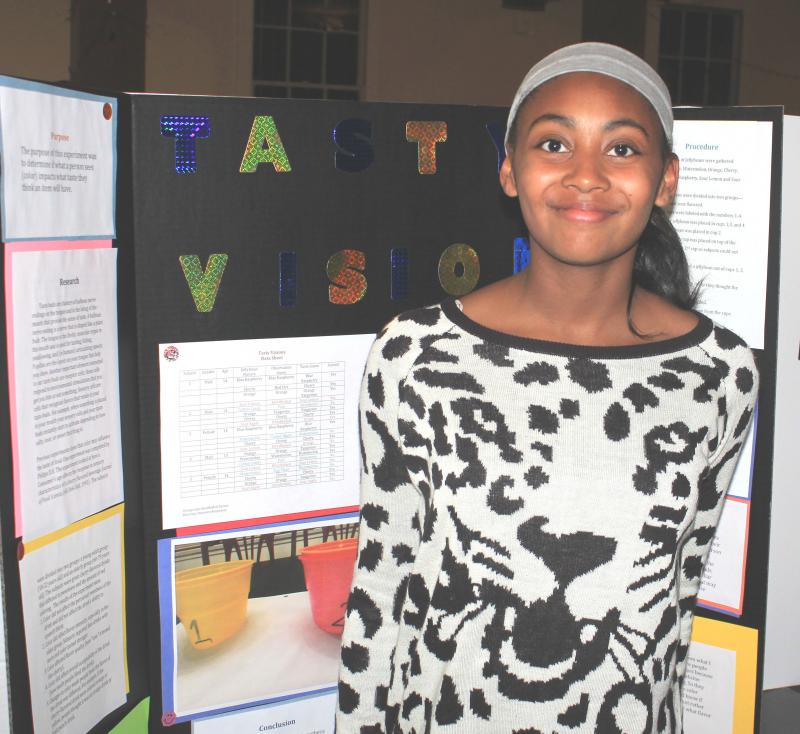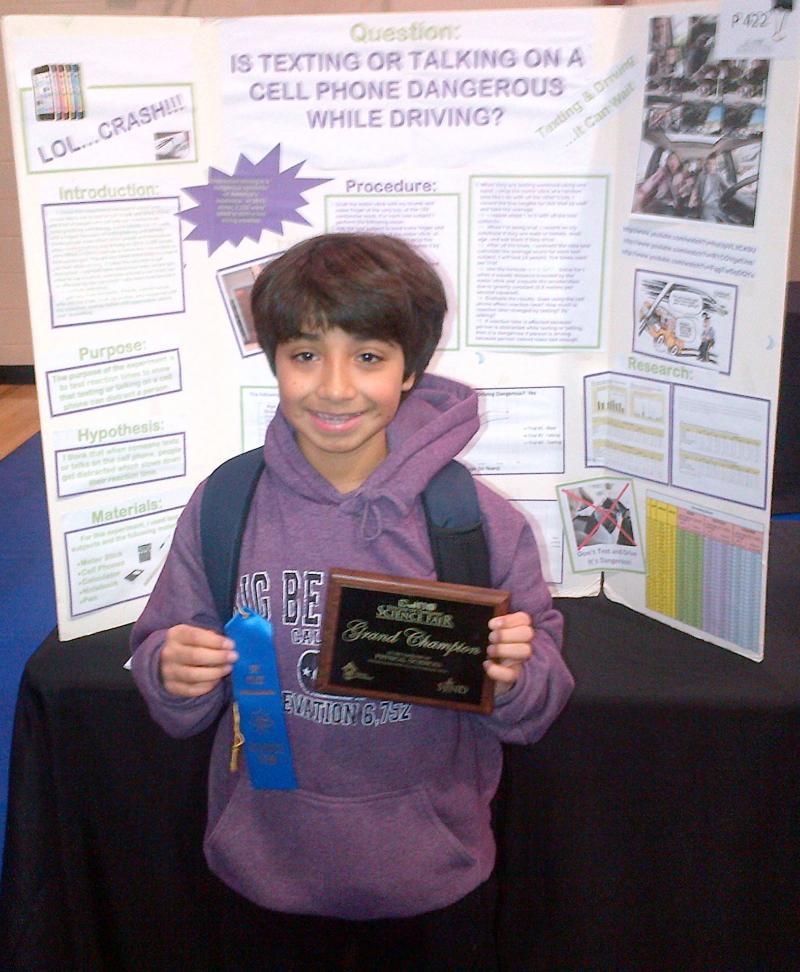“In the Spring a young man's fancy lightly turns to thoughts of love.” -Alfred, Lord Tennyson
What’s a young man to do when plotting a spring sc ience fair project? If he is fourteen and male, the chances are his mind will turn to thoughts of fire, explosions, and projectiles. He might or might not seek his parent’s approval first, but if his older brother has run a similar experiment a few years before, he is empowered by sibling precedent: “But you let Michael do it!” (Or even better, “But Dad, you showed us yourself how to launch a tuna can of flaming sawdust from the catapult!")
ience fair project? If he is fourteen and male, the chances are his mind will turn to thoughts of fire, explosions, and projectiles. He might or might not seek his parent’s approval first, but if his older brother has run a similar experiment a few years before, he is empowered by sibling precedent: “But you let Michael do it!” (Or even better, “But Dad, you showed us yourself how to launch a tuna can of flaming sawdust from the catapult!")
Thus Robert Hess experimented with testing differences in the burn rate of potassium nitrate when mixed with brown sugar, granulated white sugar, and powdered sugar. It was a diabolically devised experiment, producing much sound and fury (spoiler: the longest burn came from brown sugar + KNO3). What it also showed is that if you accidentally detonate a whole pan of rocket fuel in the back yard you will create a magnificent 100-foot-high plume of blue-white smoke and steam at which the neighbors will marvel greatly.
Why recount a story of participation in that tried-and-true school institution, the science fair? I do so to illustrate a point about science education in religious schools.
A few months ago, in the course of an online argument about science teaching in elementary school, someone made an extraordinary claim: “If these young earth creationists are so stupid and so opposed to science, why don't they just send their kids to a Catholic school, where they won't have to study science but only read the Bible?” This statement revealed such profound ignorance, both about the history of Catholic education and about its current educational philosophy, that it would be worth a look.
For the past fourteen years my two sons have studied at a fine Catholic school in Berkeley, the School of the Madeleine. Science has played an integral role in their curriculum, including field trips to the Marine Mammal Center, to the Lawrence Hall of Science, and to the California Academy of Sciences. A highlight has been the students' nine-year engagement with marine science through the fantastic annual week-long MARE program: “Marine Activities, Resources & Education.” From Kindergarten to eighth grade the children learn about marine biology in modules that build one upon another, moving from studying estuaries to learing about the ecology of coral reefs to investigating the effects of global warming on the open ocean.
An exciting addition to the Madeleine science curriculum was teacher Theresa Parini's institution of a competitive science fair. She assigns her students a strict rubric for the conception, execution, and presentation of science experiments, helping them reach a higher plane of the critical thinking. I was stunned with the diversity of projects and quality of experiments presented by the students this year in the parish hall. They ranged from projects at the beginner level to those that exhibited considerable sophistication in planning and execution.
Seventh-grader Zack  Schmidt wanted to move beyond the usual baking-soda-and-food-coloring trick to explore the problem of how to create a chemical reaction that might better model a real lava flow. His hypothesis was that potassium permanganate and glycerin would produce a moderate thermite reaction, the power of which he could increase by adding ammonium dichromate, sulfur and magnesium powder. He then added iron oxide filings to produce molten iron. (His experiment proved impressively succ
Schmidt wanted to move beyond the usual baking-soda-and-food-coloring trick to explore the problem of how to create a chemical reaction that might better model a real lava flow. His hypothesis was that potassium permanganate and glycerin would produce a moderate thermite reaction, the power of which he could increase by adding ammonium dichromate, sulfur and magnesium powder. He then added iron oxide filings to produce molten iron. (His experiment proved impressively succ essful.) Eighth-grader Janelle Ingram's experiment reflected her gentler XX-chromosome-influenced orientation. She devised an elegant experiment in olfactory chemstry to see whether what we see influences how we taste, concluding that vision does affect the experience of tasting.
essful.) Eighth-grader Janelle Ingram's experiment reflected her gentler XX-chromosome-influenced orientation. She devised an elegant experiment in olfactory chemstry to see whether what we see influences how we taste, concluding that vision does affect the experience of tasting.
A very ingenious project that demonstrated clear understanding of experimental methods was that of seventh grader Diego Peña, who asked whethe r one could measure the effect on a driver’s attention while texting or talking on a cell phone. He held a yardstick vertically with the subject’s hand ready to grip it at the bottom, and dropped it without warning. People talking on a cell phone had a somewhat delayed response in grabbing the falling yardstick, and subjects who were texting had a significantly slower response time. Diego not only had the highest scoring project at the school, but he went on to win top prizes at both the Oakland Catholic Diocesan Science Fair and the Alameda County Science Fair for all schools in the county.
r one could measure the effect on a driver’s attention while texting or talking on a cell phone. He held a yardstick vertically with the subject’s hand ready to grip it at the bottom, and dropped it without warning. People talking on a cell phone had a somewhat delayed response in grabbing the falling yardstick, and subjects who were texting had a significantly slower response time. Diego not only had the highest scoring project at the school, but he went on to win top prizes at both the Oakland Catholic Diocesan Science Fair and the Alameda County Science Fair for all schools in the county.
The science faculty at the School of the Madeleine undergo the same education and qualification process as do science teachers in any other school. I asked how they viewed the relationship between their scientific training and practice and their religious belief. Junior High science teacher Joseph Nagel said,
I sometimes consider science to be the constant investigation of the external world, a quest to analyze and understand the physical world, exclusive of human experience. Religion I see as the eternal internal investigation, a search to explore and understand what lies within and between us, an examination of the human experience. If science is our understanding of the world, religion is our understanding of us. Maybe science is the ‘how’ and religion is the ‘why.'
Asked why she considers science teaching important, third grade teacher Gisele Texeira’s response was indistinguishable from that of a teacher at any secular school:
I believe all children are innately curious, and, given the right tools and encouragement to ask questions, they will become citizens who question, inquire, infer, analyze, and try to understand how our physical world functions.
Based on my work at NCSE in exposing science denial and promoting the teaching of evolution and climate change, I posed this question to the teachers: “As you know, in some parts of the country the theory of biological evolution is viewed as being hostile to religious belief. Do you regard evolutionary thinking as standing in opposition to religious belief, or as being consonant with it, or as being in some category of neutrality?”
The answers ranged from “of course not” to “No. why should it?” to genuine surprise. One teacher said, “Thankfully, the Catholic Church accepts the teaching of evolution and the modern scientific body of thought. We have many Jesuits and other clergy with Ph.D.s in all branches of scientific study. Even Pope Francis spent time as a chemist!” Gisele Texeria—who hails from the Catholic but educationally secular country of Brazil—argued that both science and religion are in constant evolution and that perspectives in both can change from time to time:
Look at our new pope and his perspectives on God, on the world, and on science and religion! Could one have thought, years ago, that a Pope could speak so coherently, yet so pragmatically (a word usually used in science) about scientific matters like climate change? I have not changed my religious views, but to have a pope now that I can relate to more than ever is a refreshing breath of air for my faith.
It may yet be an open question whether public or private schools prepare students better for standardized tests and for success at university and in professinal life. Clearly there are numerous variables involved, including denomination and the influence of socio-economic background of the students. However, in the case of the Catholic school with which I am most familiar the claim could not be more wrong that “if these people don’t want their kids to learn science they should send them to a Catholic school, where they won't have to study science.” I can find no perceptible difference between how science is taught at the School of the Madeleine and how it is taught in secular schools, at the level of underlying assumptions, or of methdology, or of the conclusions reached. Students graduate with a very solid understanding of the method and goals of scientific exploration and perform excellently in high school and college.
